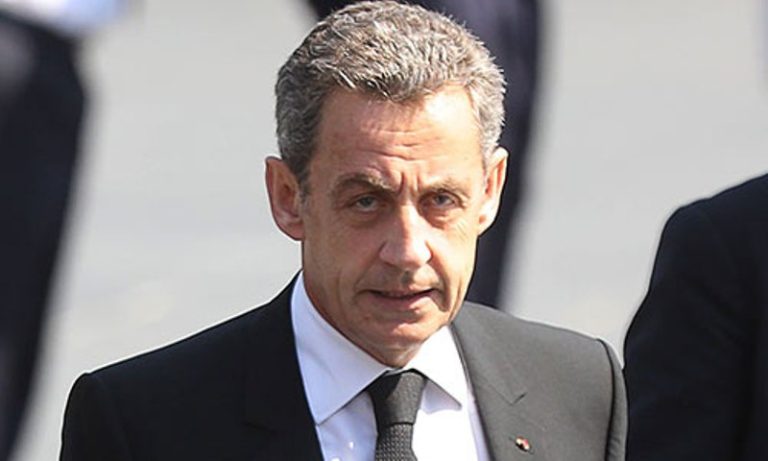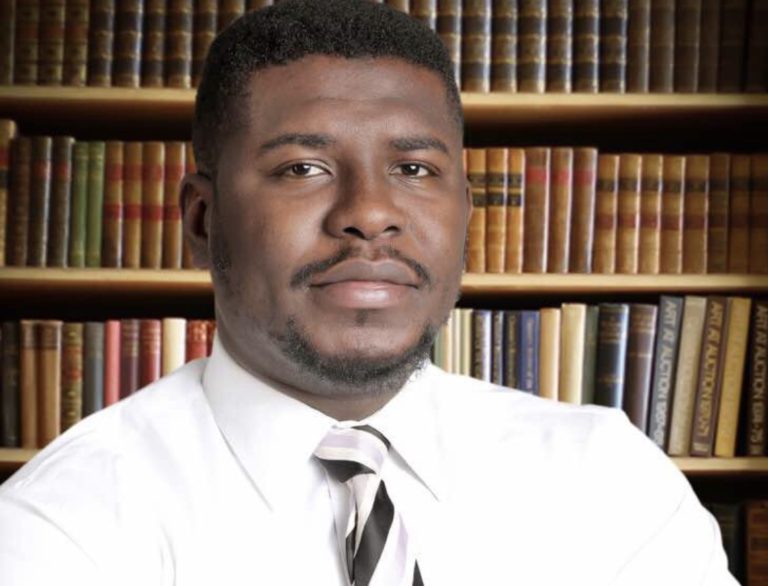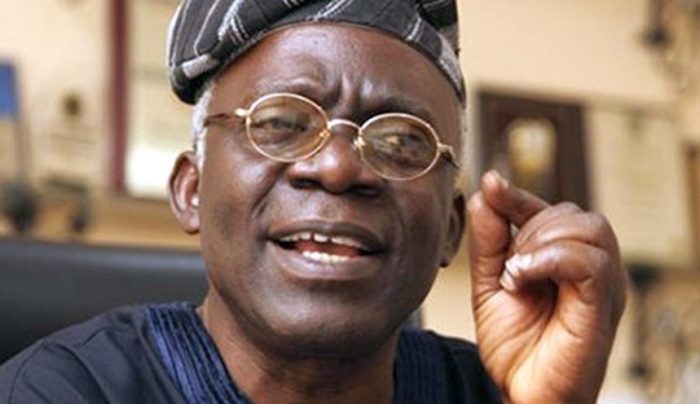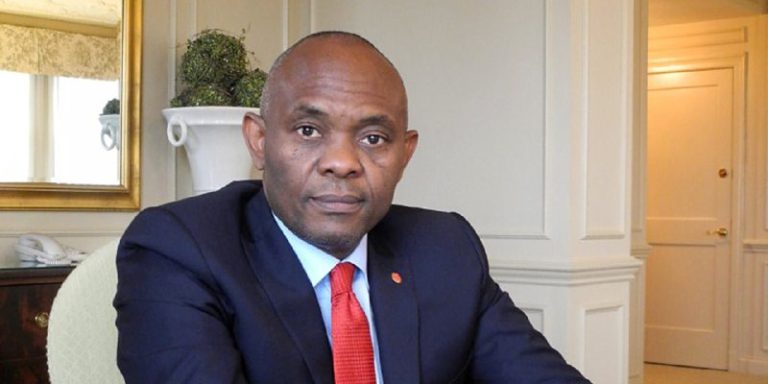Popular American author and speaker, Natalie Golberg, has written a lot about writing, including what writers should do when they have no clue about what to write about—a situation I find myself in right now. In such moments, Golberg suggests writing about “What disturbs you, what you fear, what you have not been willing to speak about.” I have several times taken her counsel but it does not work for me this week. There are so many things that disturb me or that I fear or that I would rather not speak about. Take the death last Sunday of Colonel Haliru Bako who was killed in a firefight with insurgents in Gamboa, Borno State.
Although I never met the late gallant officer, I know some of his senior colleagues who speak highly of him. It is sad that the commander of ‘Operation Lafiya Dole’ would die along with his men following an ambush by the same Boko Haram insurgents that military authorities continue telling Nigeria have been ‘technically defeated’. As Boko Haram and terror affiliates step up their capacity to kill, maim and kidnap at will, the Coalition of North East Elders for Peace and Development (CNEEPD) at the weekend said the excuses being tendered by service chiefs were no longer acceptable. The statement, tagged: ‘We are tired of excuses, sack service chiefs now,’ and signed by the group’s chairman, Zana Goni, called on President Muhammadu Buhari “to honour the resolution of the National Assembly and positions of the majority of Nigerians to immediately remove the service chiefs and bring in new hands to effectively confront the security challenges staring us in our face as a nation.”
The North-east elders can say whatever they like but the service chiefs are well aware that they are secure in their positions and that the president will not heed such counsel. Certainly not from some elders. Nor from the general public or even the National Assembly. Which then explains why at a time insurgents are escalating their brutality against civilians as well as our troops, the army leadership is busy funding the production of a Nollywood movie, ‘Fatal Arrogance’, in an apparent move to justify the December 2015 massacre of hundreds of Islamic Movement of Nigeria (IMN) Shiite members in Kaduna which led to the injury and subsequent arrest and detention of their leader, Sheikh Ibrahim El-Zakzaky and his wife, Zeenat.
Now that the army has moved into Nollywood movie production, I hope the script writers will not forget to include the disclosure by the then Secretary to the Kaduna State Government, Balarabe Lawal, that 347 corpses were given a mass burial in a single grave on the night of 14th December 2015. According to Lawal, 191 of the corpses were recovered from the Army Depot in Zaria and another batch of 156 corpses from the Ahmadu Bello University Teaching Hospital (ABUTH). I hope they also included the chilling testimony of the Director-General of Interfaith, Muhammad Namadi Musa: “On 13th December, 2015, I received a phone call from the SSG to come to the Government House after which I was directed to go to Zaria to find out the number of corpses and how they would be buried. I moved in company of the State Commissioner of Police straight to ABUTH, Zaria to ascertain the number of corpses. There we counted 156 corpses. At the Nigerian Depot, the SSG directed me to meet with one Major Ogundare regarding the corpses there. After introducing myself, he refused to let me know the number; but later on, the SSG told me the number. He also confirmed the number while they were being buried; as he counted them one after the other as they were laid in one grave. We left the Nigerian Army Depot with three heavy-duty trucks and 60 young officers who escorted us to assist in offloading the corpses. From ABUTH, Zaria, five small trucks carried the corpses. Most corpses were covered with black materials and they included women and children.”
As disturbing as this Nollywood agenda of the army may be, I would rather wait until the movie hits Netflix before I make my comments. But while we are still about things that disturb, I read a story yesterday that left me dumfounded. On Monday evening in Calabar, Cross River State, two teenagers suspected to be armed robbers were lynched by an angry mob. The story carried two sets of photographs, one showing the apprehended teenagers and the second, showing them in flames. “When we noticed that the boys were robbing; we decided to lay siege and accost them…Two ran through a nearby street; while the one who joined us in raising alarm wanted to escape via Rabana roundabout, he was apprehended and lynched. The other was also lynched and set ablaze,” according to the eyewitness quoted in the report.
Sadly, the Calabar incident is just one of several such cases where lives were taken without due process. A Google search revealed the growing numbers of Nigerians who have been ‘tried and summarily executed’ by mobs for offences they may not even have committed. I did not even know that jungle justice is another sordid emblem for our country until I read Wikipedia, describing it as “a form of public extrajudicial killings in sub-Saharan African, most notably Nigeria and Cameroon, where an alleged criminal is humiliated, beaten or summarily executed by a crowd or vigilantes.” After highlighting the different ways by which this brand of justice is usually carried out in the two countries, Wikipedia now concludes: “This form of street justice occurs where a dysfunctional and corrupt judiciary system and law enforcement have lost all credibility.”
Since even a writer must know when to ‘off the mic’, I believe we should leave that matter for now. Meanwhile, I have received several mails asking why there has been a deafening silence from me on the Edo State gubernatorial election despite all the drama of the past few months. My response to those who asked has been: When two people to whom I relate very well fight each other, if I cannot reconcile them, I try to stay out of their trouble.
In researching my book, ‘From Frying Pan to Fire: How African Migrants Risk Everything in their Futile Search for a Better Life in Europe’ I spent considerable time in the Edo state capital and interacted quite a bit with Governor Godwin Obaseki and many of his aides. So, I knew as far back as November 2018 that all was not well between the governor and his predecessor, Comrade Adams Oshiomhole, who was at that period the All Progressives Congress (APC) National Chairman. I thought I could bring the duo to reach a compromise on the two issues that divided them: One, how to handle local party operatives who the governor said had become law unto themselves and needed to be tamed; and two, the choice of APC candidates for the Edo State House of Assembly in the 2019 general election. I had separate (one-on-one) meetings with both Obaseki and Oshiomhole but nothing came of my efforts at reconciliation. I am also aware of efforts by many other stakeholders that similarly failed.
Several factors shaped the Edo State gubernatorial election and I am going to come back to them one day. But the one being glossed over, yet perhaps most significant, is that Governor Obaseki benefited from the politics of 2023 and the cold calculations within the different factions of the ruling party. Besides, the majority of APC Governors who were not happy about the way their former colleague was edged out, by their nods and winks, were rooting for Obaseki to win and may have supported him. But the pre-election video statement by Asiwaju Bola Ahmed Tinubu was also a needless own goal that provoked the slogan, ‘Edo no be Lagos’ and the nationalistic fervour that worked for the incumbent.
I congratulate Governor Obaseki on his well-deserved victory based on his performance in office but I wish he would take the admonition by President Muhammadu Buhari and be magnanimous. Whatever may be the difference between him and Oshiomhole today, he should not forget yesterday. While he and the Peoples Democratic Party (PDP) that sheltered him with their umbrella (after the conspiracy that denied him the APC ticket) therefore deserve their victory dance, the conventional wisdom in the Yoruba adage that what is after six can sometimes be more than seven will serve the re-elected governor well at a time like this.
However, beyond the drama of personalities, the most significant lesson to draw from the Edo election is the fact that political parties mean nothing in Nigeria. That is an issue we must come back to interrogate. But what I fail to understand is those who query the accolades being given to President Buhari by the PDP and the victorious governor. For the uninitiated, this was the response of former President Olusegun Obasanjo in November 2012 to a remark made by former Governor Ibrahim Shekarau of Kano on the 2003 gubernatorial election in his state at a roundtable on party politics organized by the National Institute for Legislative Studies in Abuja: “I want to thank former Governor Shekarau for what happened to him in Kano. What he did not know, which he may want to know today, is that he won that election with a very narrow margin, and if I had yielded to pressure, that narrow margin would have been changed.”
Since I am not disturbed about the outcome of the gubernatorial election in Edo State, I think we should leave that matter for today. I also want to keep my counsel on the proposed strike by the Nigeria Labour Congress (NLC) and Trade Union Congress (NUC) over the recent hike in electricity tariff and pump price of petrol. Yet, as I was ruminating on how to fill this page today, I received one of those ‘forwarded’ WhatsApp messages from Senator Sanusi Dagash. It was the 28th May, 1991 acceptance speech delivered by the late President Vaclav Havel when he was awarded the Sonning Prize by the University of Copenhagen, Denmark, for his contribution to European civilization. A famous writer, public intellectual and dissident, the late Havel, last president of Czechoslovakia and the first president of Czech Republic, was an unusual politician and that much was reflected in this speech titled, ‘The Temptation of Political Power’. I leave it for readers as I tender my apology for not writing this week.
The prize I’ve been honored with today is usually given to intellectuals, not to politicians. I am obviously what can be called an intellectual, but at the same time, fate has determined that I find myself — literally overnight — in what is called the world of high politics. With your permission, I would like to take advantage of my unusual experience and try to cast a critical eye of an intellectual on the phenomenon of power as I have been able to observe it so far from the inside, and especially on the nature of the temptation that power represents. Why is it that people long for political power, and why, when they have achieved it, are they so reluctant to give it up?
In the first place, people are driven into politics by ideas about a better way to organize society, by faith in certain values or ideals, be they impeccable or dubious, and the irresistible desire to fight for those ideas and turn them into reality. In the second place, they are probably motivated by the natural longing every human being has for self-affirmation. Is it possible to imagine a more attractive way to affirm your own existence and its importance than that offered by political power? In essence, it gives you a tremendous opportunity to leave your mark, in the broadest sense, on your surroundings, to shape the world around you in your own image, to enjoy the respect that every political office almost automatically bestows upon the one who holds it. In the third place, many people long for political power and are so reluctant to part with it because of the wide range of perks that are a necessary part of political life — even under the most democratic of conditions.
These three categories are always, I have observed, intertwined in complicated ways, and at times it is almost impossible to determine which of them predominates. The second and third categories, for instance, are usually subsumed under the first category. I have never met a politician who could admit to the world, or even to himself, that he was running for office only because he wanted to affirm his own importance, or because he wanted to enjoy the perks that come with political power. On the contrary, we all repeat over and over that we care not about power as such but about certain general values. We say it is only our sense of responsibility to the community that compels us to take upon ourselves the burden of public office. At times, only God Himself knows whether that is true, or simply a more palatable way of justifying to the world and ourselves our longing for power, and our need to affirm, through our power and its reach, that we exist in a truly valid and respectable way.
The situation is made more complicated because the need for self-affirmation is not essentially reprehensible. It is intrinsically human, and I can hardly imagine a human being who does not long for recognition, affirmation, and a visible manifestation of his own being.
I am one of those people who consider their term in political office as an expression of responsibility and duty toward the whole community, and even as a sort of sacrifice. But, observing other politicians whom I know very well and who make the same claim, I feel compelled again and again to examine my own motives and ask whether I am not beginning to deceive myself. Might I not be more concerned with satisfying an unacknowledged longing for self-affirmation — a desire to prove that I mean something and that therefore I exist — than I am with pure public service? In short, I am beginning to have suspicions about myself. More precisely, my experience so far with politics and politicians compels me to have these suspicions. In fact, every new prize I receive compels me to be a degree more suspicious.
The third category of reasons for desiring political power — longing for the advantages power brings, or simply getting used to those advantages — deserves special attention. It is interesting to observe how diabolical the temptations of power are, precisely in this sphere. This is best observed among those of us who have never held power of any kind before. Bravely, we used to condemn the powerful for enjoying advantages that deepened the gulf between them and the rest. Now we ourselves are in power.
We are beginning, inadvertently but dangerously, to resemble in some ways our contemptible precursors. It bothers us, it upsets us, but we are discovering that we simply can’t, or don’t know how to, put a stop to it. I will give you several examples.
It would make no sense whatever for a government minister to miss an important cabinet discussion of a law that will influence the country for decades to come simply because he has a toothache and has to wait all afternoon at the dentist’s until his turn comes. So — in the interests of his country — he arranges to be treated by a special dentist, someone he doesn’t have to wait for.
It would certainly not make sense for a politician to miss an important state meeting with a foreign colleague simply because he has been held up by the vagaries of public transport. So — he has a government car and a chauffeur.
It would certainly not make sense for a president or a prime minister to miss such a meeting simply because his car is caught in a traffic jam, so he has the special right to pass cars that are ahead of him or to go through red lights, and in his case the traffic police tolerate it.
It would certainly make no sense for a politician to waste valuable time sweating over a stove and cooking an official meal for a counterpart from abroad. So he has a personal cook and waiters to do it for him.
It would certainly make no sense for the president’s cook to go from butcher shop to butcher shop like a normal homemaker in a post-socialist country in search of meat good enough to offer without shame to an important guest. So special deliveries of supplies are arranged for prominent people and their cooks.
It would certainly make no sense if a president or a premier had to look up numbers in the telephone book himself and then keep trying again and again until he reached the person or until the line became free. Quite logically, then, this is done by an assistant.
To sum up: I go to a special doctor, I don’t have to drive a car, and my driver need not lose his temper going through Prague at a snail’s pace. I needn’t cook or shop for myself, and I needn’t even dial my own telephone when I want to talk to someone. In other words, I find myself in the world of privileges, exceptions, perks; in the world of VIPs who gradually lose track of how much butter or a streetcar ticket costs, how to make a cup of coffee, how to drive a car, and how to place a telephone call. I find myself on the very threshold of the world of the communist fat cats whom I have criticized all my life.
And worst of all, everything has its own unassailable logic. It would be laughable and contemptible for me to miss a meeting that served the interests of my country because I had spent my presidential time in a dentist’s waiting room, or lining up for meat, or nervously battling the decrepit Prague telephone system, or engaging in the hopeless task of finding a taxi in Prague when I am obviously not from the West and therefore not in possession of dollars.
But where do logic and objective necessity stop and excuses begin? Where does the interest of the country stop and the love of privileges begin? Do we know, and are we at all capable of recognizing, the moment when we cease to be concerned with the interests of the country for whose sake we tolerate these privileges, and start to be concerned with the advantages themselves, which we excuse by appealing to the interests of the country?
Regardless of how pure his intentions may originally have been, it takes a high degree of self-awareness and critical distance for someone in power — however well-meaning at the start — to recognize that moment. I myself wage a constant and rather unsuccessful struggle with the advantages I enjoy, and I would not dare say that I can always identify that moment clearly. You get used to things, and gradually, without being aware of it, you may lose your sense of judgement.
Again, being in power makes me permanently suspicious of myself. What is more, I suddenly have a greater understanding of those who are starting to lose their battle with the temptations of power. In attempting to persuade themselves that they are still merely serving their country, they increasingly persuade themselves of nothing more than their own excellence, and begin to take their privileges for granted.
There is something treacherous, delusive, and ambiguous in the temptation of power. On the one hand, political power gives you the wonderful opportunity to confirm, day in and day out, that you really exist, that you have your own undeniable identity, that with every word and deed you a leaving a highly visible mark on the world around you. Yet within that same political power and in everything that logically belongs to it lies a terrible danger: that, while pretending to confirm our existence and our identity, political power will in fact rob us of them.
Someone who forgets how to drive a car, do the shopping, make himself coffee, and place a telephone call is not the same person who had known how to do those things all his life. A person who had never before had to look into the lens of a television camera and now has to submit his every movement to its watchful eye is not the same person he once was. He becomes a captive of his position, his perks, his office. What apparently confirms his identity and thus his existence in fact subtly takes that identity and existence away from him. He is no longer in control of himself, because he is controlled by something else: by his position and its exigencies, its consequences, its aspects, and its privileges.
There is something deadening about this temptation. Under the mantle of existential self-affirmation, existence is confiscated, alienated, deadened. A person is transformed into a stone bust of himself. The bust may accentuate his undying importance and fame, but at the same time it is no more than a piece of dead stone. Kierkegaard wrote ‘Sickness unto Death’. Allow me to paraphrase your excellent countryman and coin the phrase “power unto death.”
What may we conclude from this?
Certainly not that it is improper to devote oneself to politics because politics is, in principle, immoral. What follows is something else. Politics is an area of human endeavor that places greater stress on moral sensitivity, on the ability to reflect critically on oneself, on genuine responsibility, on taste and tact, on the capacity to empathize with others, on a sense of moderation, on humility. It is a job for modest people, for people who cannot be deceived.
Those who claim that politics is a dirty business are lying to us. Politics is work of a kind that requires especially pure people, because it is especially easy to become morally tainted. So easy, in fact, that a less vigilant spirit may not notice happening it at all. Politics, therefore, ought to be carried on by people who are vigilant, sensitive to the ambiguous promise of self-affirmation that comes with it.
I have no idea whether I am such a person. I only know that I ought to be, because I have accepted this office.













